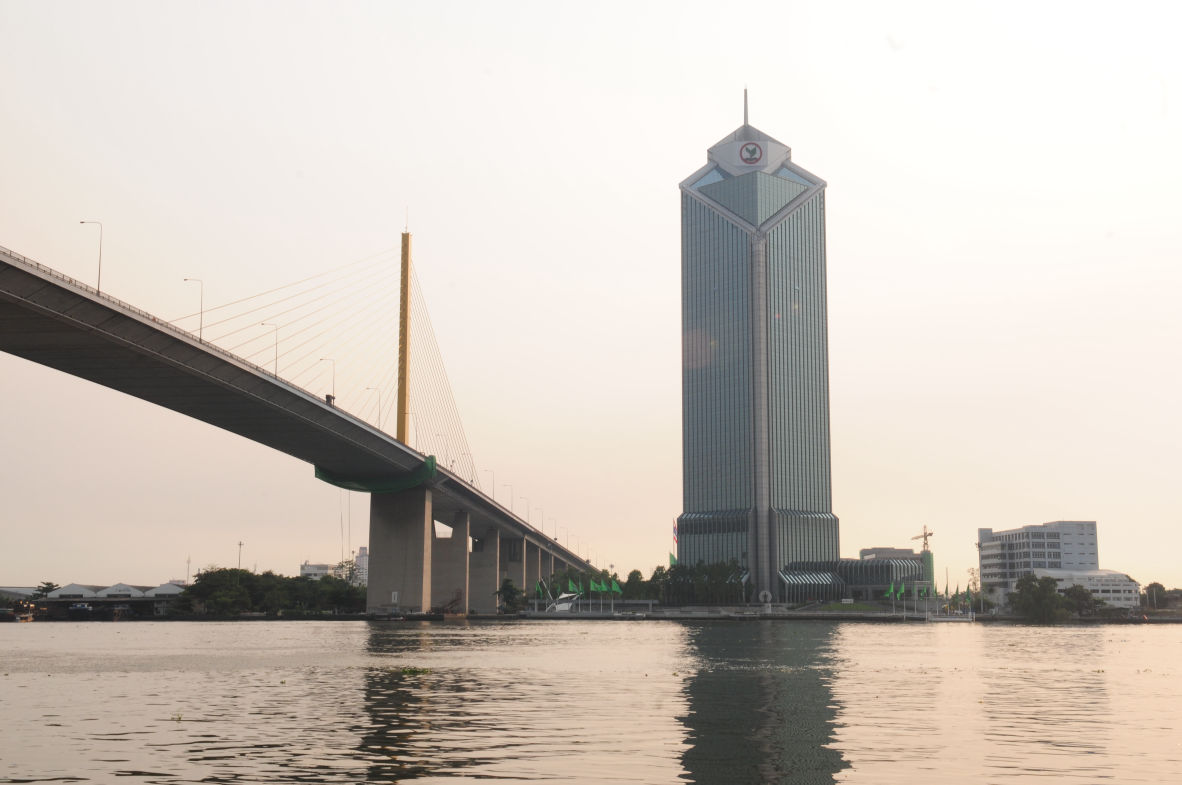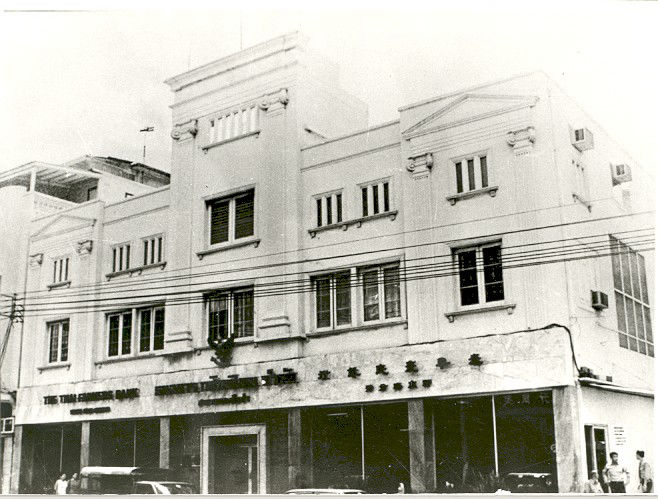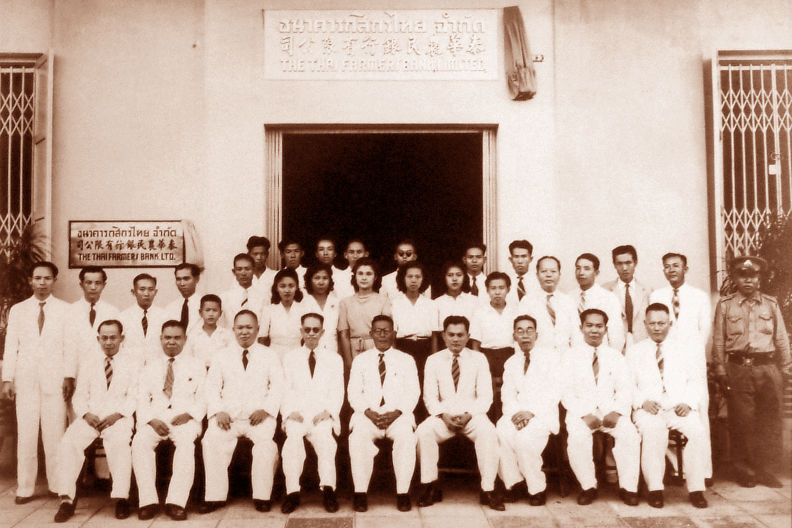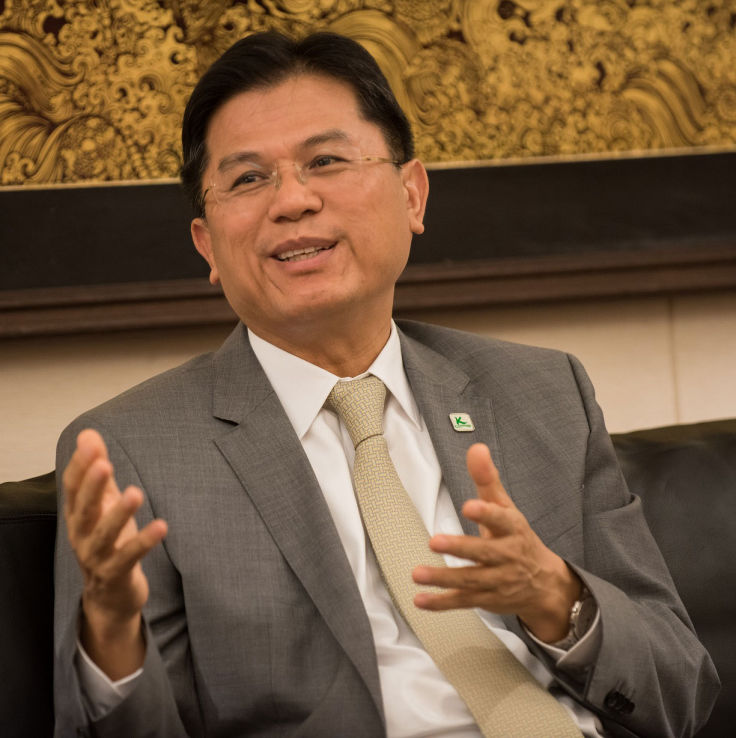KBank emerged from the ashes of World War II and weathered the storm of the 1997 financial crisis
- By Somruedi Banchongduang -

After Japanese troops invaded Thailand on Dec 8, 1941, foreign banks based in countries declared Japan’s enemies were forced to close their operations and the sudden shortage of banking services prompted the establishment of several local commercial banks.
Kasikornbank (KBank) was among those Thai banks, starting operations in June 1945, just a few months before Japan’s announcement of unconditional surrender at the end of World War II.
The bank was founded by Choti Lamsam, the grandfather of the current chief executive Banthoon.
KBank’s original name was Thai Farmers Bank, and it targeted farmers who made up the bulk of the country’s population during the early stages of the bank’s incorporation.
KBank’s first office was on Bangkok’s Sua Pa Road, located in what was a trade district where Chinese businesses were based, with 21 employees.
The bank has operated for 73 years, beginning at a time when many other commercial banks and the Bangkok Post also launched, said president Predee Daochai.
As World War II wound down, the country’s economy and society were in distress, and contributing to the overall economic rehabilitation became KBank’s goal, he said.
Over the last 73 years, the bank has weathered several boom and bust economic cycles but the biggest crisis in the bank’s history was the 1997 Asian Financial Crisis.
Dozens of financial institutions collapsed, while the survivors were saddled with high non-performing loans and struggled to receive fresh funds to stay afloat amid hardships.
KBank managed to raise 40 billion baht from issuing Stapled Limited Interest Preferred Stock, a hybrid security, to maintain its capital adequacy ratio (CAR) as required by the Bank of Thailand, in addition to recapitalisation through share offering.


“Thailand paid a high price for the 1997 financial crisis, but the most valuable lesson was learning to be more prudent,” Mr Predee said.
After riding through the financial storm, KBank’s financial position has since been healthy, with its CAR far above the central bank’s minimum requirement at 8.5% of risk-weighted assets.
The bank is also the first and only bank in Thailand, as well as Asean, to have been included in the Dow Jones Sustainability Indices — a globally recognised benchmark of sustainable business practices — for two years running.
In the digital age, the banking industry is facing new challenges from disruptive technology, which shifts power to consumers from operators and levels the playing field between fintech startups and established banks.

Predee Daochai
“With the changing environment in the digital era, we must think beyond being a commercial bank,” Mr Predee said.
“We need to uplift our service capability to brace for the ever-changing consumer behaviour and sustain business operations in the long run.’’
The bank has rolled out K Plus, which is the industry’s No.1 mobile banking app with more than 8 million users, to migrate existing consumers to the digital platform, which carries lower cost than traditional channels, raises customer engagement and helps acquire new customers.
To maintain its leadership position, it has outlined three service strategies — Beyond Banking; Embedded Trust; and Everyone, Everyday, Every way, Everywhere — to give positive experiences to customers.

Tag

Tag

Tag

Tag

Tag

Tag
SHARE THIS PAGE!